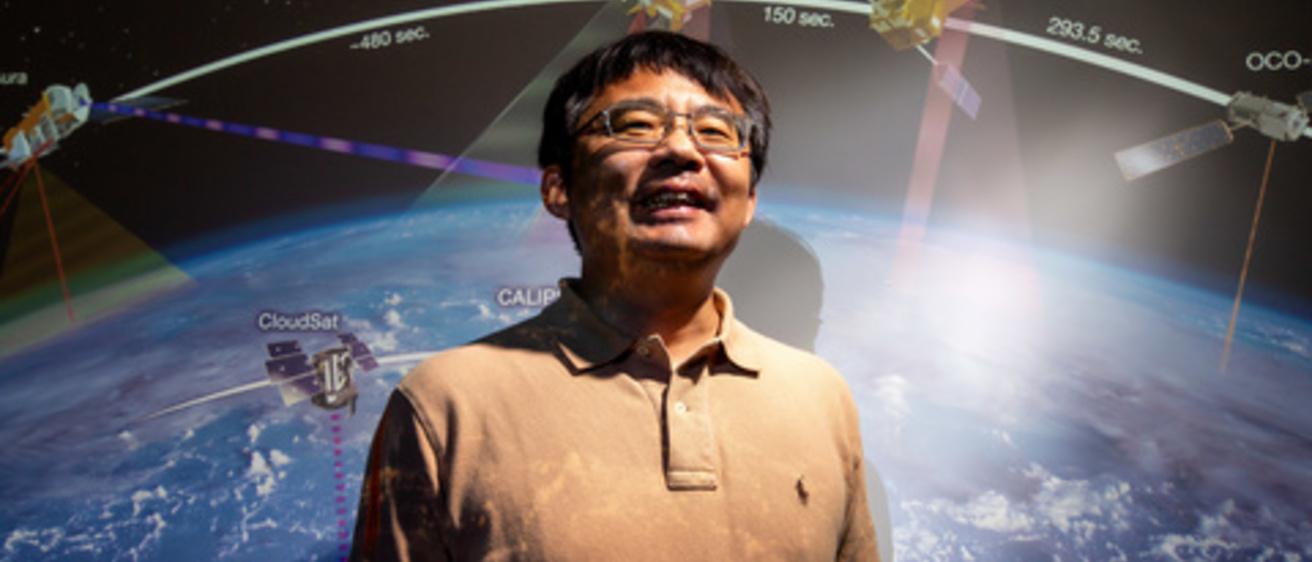Spurred by the recent high-profile Blue Origin and Virgin Galactic launches, one of University of Iowa's top scientists joined News Talk 1540 KXEL radio of Waterloo on July 21, 2021, for a wide-ranging discussion about space-based research as interest in space travel and curiosity about the cosmos surges.
Jun Wang, Iowa Technology Institute assistant director and an expert in Earth sciences, said he believes renewed interest will spur more space-based endeavors in the years to come, which will create more opportunities for people to engage in a wider variety of ways.
"There will be lots of opportunities for our students to study and explore, but also a lot of job opportunities," said Wang, the James E. Ashton Professor of Engineering who holds an appointment as professor of chemical and biochemical engineering in the College of Engineering.
The interview occurred not long after Amazon founder Jeff Bezos, in the Blue Origin, and Richard Branson, founder of Virgin Galactic space firm, successfully rocketed into space as private citizens, generating significant media attention and speculation about when average civilians may someday be able to blast off.
"A balance is good," Wang said of private sector versus public sector interests in space. "Increasingly, the private sector is opening a pathway for citizens to explore how we can view our planet from space. Launches are getting cheaper and cheaper and technology is getting safer and safer."
Wang joined for a 15 minutes segment. He discussed UI's new initiative to expand space-based research collaborations across campus and become the destination of choice for prospective college students. UI has a strong legacy of space-based research success tracing back to James Van Allen’s pioneering discovery of Earth’s radiation belts in 1958.
While space-based research may more commonly conjure images of probing into the galaxy for life on other planets or black holes, a significant portion of space-based research also looks back at Earth. That is where Wang specializes. Wang's research leverages satellites to observe and collect data that help us better understand conditions on Earth. Among his focuses, Wang uses the data to improve the accuracy of weather forecasts, detect wildfires, understand lightning strikes, and track air pollution.
The full KXEL segment is available at https://soundcloud.com/newstalk1540kxel/dr-jun-wang-on-iowa-and-space-wed-jul-21-2021.
